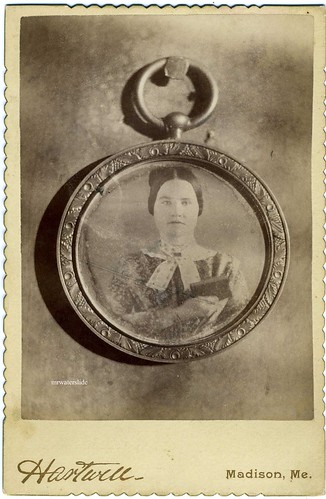Wednesday, December 31, 2008
Michael Kaiser - No Bailout for the Arts? - washingtonpost.com:
While government bailouts are being offered or considered for financial institutions, the auto industry, homeowners, and so many other needy and worthy sectors, one group is quickly and rather quietly falling apart: our nation's arts organizations. In the past few months, dozens of opera companies, theater companies, dance organizations, museums and symphonies have either closed or suffered major cash crises.
As someone who has made a career out of fixing troubled organizations, I know that the problems faced by arts groups are often related to poor management and governance. I also know that the difficulty in improving productivity in the arts is a central cause of our financial challenges: It takes as much time to play Beethoven's Fifth Symphony today as it did when the piece was composed, and the same number of actors are required for "Hamlet" as when Shakespeare wrote the play more than 400 years ago. Unlike other industries, the arts cannot cover the cost of inflation by improving worker productivity.
While government bailouts are being offered or considered for financial institutions, the auto industry, homeowners, and so many other needy and worthy sectors, one group is quickly and rather quietly falling apart: our nation's arts organizations. In the past few months, dozens of opera companies, theater companies, dance organizations, museums and symphonies have either closed or suffered major cash crises.
As someone who has made a career out of fixing troubled organizations, I know that the problems faced by arts groups are often related to poor management and governance. I also know that the difficulty in improving productivity in the arts is a central cause of our financial challenges: It takes as much time to play Beethoven's Fifth Symphony today as it did when the piece was composed, and the same number of actors are required for "Hamlet" as when Shakespeare wrote the play more than 400 years ago. Unlike other industries, the arts cannot cover the cost of inflation by improving worker productivity.
Playwright Harold Pinter Buried in London - NYTimes.com:
''I might even show you my photograph album,'' Gambon read. ''You might even see a face in it that might remind you of your own, of what you once were. You might see faces of others in shadows or cheeks of others turning or jaws or backs of necks or eyes, dark under hats, which might remind you of others whom you thought long dead but from whom you will still receive a sidelong glance if you can face the good ghost.''
Gambon had read the same lines onstage Dec. 26 in the first performance of one of Pinter's plays since his death.
''I might even show you my photograph album,'' Gambon read. ''You might even see a face in it that might remind you of your own, of what you once were. You might see faces of others in shadows or cheeks of others turning or jaws or backs of necks or eyes, dark under hats, which might remind you of others whom you thought long dead but from whom you will still receive a sidelong glance if you can face the good ghost.''
Gambon had read the same lines onstage Dec. 26 in the first performance of one of Pinter's plays since his death.
Playbill News: San Francisco's Magic Theatre Is in Peril; Will Close Without Cash Infusion:
Magic Theatre, San Francisco's 42-year-old troupe that prizes risk over commercialism, has announced on its website that it is $600,000 in debt and will shut its doors Jan. 9, 2009, unless it raises $350,000.
The debt, "combined with sharp declines in earned and contributed revenue due to the global economy, place us in imminent peril of shutting our doors," according to a Magic statement.
The not-for-profit troupe is now "in the midst of a staff shutdown" and "may be forced to cancel the remainder of its season and close for good."
Magic Theatre, San Francisco's 42-year-old troupe that prizes risk over commercialism, has announced on its website that it is $600,000 in debt and will shut its doors Jan. 9, 2009, unless it raises $350,000.
The debt, "combined with sharp declines in earned and contributed revenue due to the global economy, place us in imminent peril of shutting our doors," according to a Magic statement.
The not-for-profit troupe is now "in the midst of a staff shutdown" and "may be forced to cancel the remainder of its season and close for good."
'kül: 2008 - The Best:
How Theater Failed America - Mike Daisey is a wonderfully talented monologist, one of those richly voiced and charismatic people who fill the nuance of each syllable with a passion so palpable that what they say hardly matters--except that in this case, the words were every bit as important as the performance, and Daisey's usual collection of anecdotal humor was flooded with a hard-earned honesty well worth listening to.
How Theater Failed America - Mike Daisey is a wonderfully talented monologist, one of those richly voiced and charismatic people who fill the nuance of each syllable with a passion so palpable that what they say hardly matters--except that in this case, the words were every bit as important as the performance, and Daisey's usual collection of anecdotal humor was flooded with a hard-earned honesty well worth listening to.
Tuesday, December 30, 2008
From a post over at The Playgoer:
What I find most surprising about all of this is that everyone praises Norbert Leo Butz for going on and presumably "saving the show" - however, the show has understudies, and the understudy was playing the part for a week before Butz came on. No one thought they should give Butz a few more days to learn the lines (and spare the audience a performance by a guy carrying a script and calling for lines) while the understudy, who knew the lines just fine, played the part? Of course not. That wouldn't garner publicity, or ticket sales.
It really is a disgrace.
What I find most surprising about all of this is that everyone praises Norbert Leo Butz for going on and presumably "saving the show" - however, the show has understudies, and the understudy was playing the part for a week before Butz came on. No one thought they should give Butz a few more days to learn the lines (and spare the audience a performance by a guy carrying a script and calling for lines) while the understudy, who knew the lines just fine, played the part? Of course not. That wouldn't garner publicity, or ticket sales.
It really is a disgrace.
The Online Photographer: The Worst Photograph Ever Made:

One thing there has unfortunately never been a shortage of is bad photographs, and collectively they parade a grand variety of shortcomings: there is unremitting blandness; poor taste; lack of taste; utter ignorance of taste; dullness (oh, much, much dullness); ostentation; unintentional humor; imitation; dishonesty; misguided attempts at aestheticism, and a great panoply of technical mistakes and missteps; the list goes on and on. But for inspired badness, this recent "photograph" by Annie Leibovitz for the Lavazza calendar has it all: a pandering (unto capitulation) to empty style; excessive color which is nevertheless unattractive; an attractive model who is also unattractive (though she got legs! But what the hell is with that expression?); a really woeful idea (Romulus and Remus and their wolf-mother—oh, please) that nevertheless doesn't even work; heavyhanded overproduction; no trace of irony; a blatantly fake background that doesn't even try to match the studio-shot foreground; a baby butt, for that touch of smack-you-with-a-dead-fish cuteness; campy makeup, kitschy hair; and, to top it all off, a hilariously incongruous product placement like an embarrassing pimple.

One thing there has unfortunately never been a shortage of is bad photographs, and collectively they parade a grand variety of shortcomings: there is unremitting blandness; poor taste; lack of taste; utter ignorance of taste; dullness (oh, much, much dullness); ostentation; unintentional humor; imitation; dishonesty; misguided attempts at aestheticism, and a great panoply of technical mistakes and missteps; the list goes on and on. But for inspired badness, this recent "photograph" by Annie Leibovitz for the Lavazza calendar has it all: a pandering (unto capitulation) to empty style; excessive color which is nevertheless unattractive; an attractive model who is also unattractive (though she got legs! But what the hell is with that expression?); a really woeful idea (Romulus and Remus and their wolf-mother—oh, please) that nevertheless doesn't even work; heavyhanded overproduction; no trace of irony; a blatantly fake background that doesn't even try to match the studio-shot foreground; a baby butt, for that touch of smack-you-with-a-dead-fish cuteness; campy makeup, kitschy hair; and, to top it all off, a hilariously incongruous product placement like an embarrassing pimple.
Parabasis: Here's An Example of Why Hitchens Is A Bad Spokesman For Secularists:
It's also weird because you don't have to make up a story (or distort one) to make it obvious that Rick Warren thinks Jews are going to Hell. It's a fundamental part of Born Again theology that most people are going to hell. It's a fundamental part of many Christian and Islamic theologies, for that matter. It's a pretty mainstream belief that someone of another faith (or lack thereof) is going to hell. It's hateful and bigoted, yes, but it hardly makes Rick Warren special.
It goes on and on like this, and it's kind of unfortunate. There's a really good very obvious case to make against Rick Warren. You don't have to distort anything to make it happen, but Hitchens just can't help being sloppy because it makes for compelling copy. He's a showman who is treated like a public intellectual, it's very disappointing that he's given so many high profile outlets to peddle his PT Barnum of Argument act.
It's also weird because you don't have to make up a story (or distort one) to make it obvious that Rick Warren thinks Jews are going to Hell. It's a fundamental part of Born Again theology that most people are going to hell. It's a fundamental part of many Christian and Islamic theologies, for that matter. It's a pretty mainstream belief that someone of another faith (or lack thereof) is going to hell. It's hateful and bigoted, yes, but it hardly makes Rick Warren special.
It goes on and on like this, and it's kind of unfortunate. There's a really good very obvious case to make against Rick Warren. You don't have to distort anything to make it happen, but Hitchens just can't help being sloppy because it makes for compelling copy. He's a showman who is treated like a public intellectual, it's very disappointing that he's given so many high profile outlets to peddle his PT Barnum of Argument act.
Not the sort of person who ... | Wise Bread:
There are readers out there who say, "I'm not the sort of person" who:
* rides the bus
* wears used clothes
* takes in boarders
* rents a room in someone's house
* has a roommate
* borrows things
* lends things
* does manual labor
* follows a budget
* tracks every penny
* buys food on its sell-by date
The reason I say not to do that, is that none of these things really have anything to do with the sort of person you are. For stuff like this, when someone says, "I'm not the sort of person who," what they really mean is, "I'm so rich I don't need to" do whatever it is. And, if they live in a rich country, they're almost certainly right--even if they're pretty poor, just living in a rich country means they're so rich they can imagine that they're some particular sort of person who doesn't need to economize in some particular way.
The thing is, there's a problem with this kind of thinking--with imagining that "you're not the sort of person" who does certain kinds of things: You can start to believe it.
There are readers out there who say, "I'm not the sort of person" who:
* rides the bus
* wears used clothes
* takes in boarders
* rents a room in someone's house
* has a roommate
* borrows things
* lends things
* does manual labor
* follows a budget
* tracks every penny
* buys food on its sell-by date
The reason I say not to do that, is that none of these things really have anything to do with the sort of person you are. For stuff like this, when someone says, "I'm not the sort of person who," what they really mean is, "I'm so rich I don't need to" do whatever it is. And, if they live in a rich country, they're almost certainly right--even if they're pretty poor, just living in a rich country means they're so rich they can imagine that they're some particular sort of person who doesn't need to economize in some particular way.
The thing is, there's a problem with this kind of thinking--with imagining that "you're not the sort of person" who does certain kinds of things: You can start to believe it.
Modern Fabulousity: ModFabulous 2008: The Best In Theatre:
If 2008 had a Performer of the Year, it was certainly monologuist Mike Daisey, who leaped from regional acclaim to national recognition with not one but TWO solo tour de forces. In October, Daisey took apart America's addiction to fear and war at the Public Theater (If You See Something Say Something). But it was his spring piece, How Theatre Failed America, that ignited controversy across the entire theatrical industry. Part history, part indictment, Daisey's lucid, critical analysis of the regional theatre movement was much more than agitprop or self-reflexive navel gazing. By discussing art, it created art; in the act of discussing theatre's failure to challenge and engage the citizenry, it offered a special magnetism that can only be discovered in performance. A major new talent has arrived.
If 2008 had a Performer of the Year, it was certainly monologuist Mike Daisey, who leaped from regional acclaim to national recognition with not one but TWO solo tour de forces. In October, Daisey took apart America's addiction to fear and war at the Public Theater (If You See Something Say Something). But it was his spring piece, How Theatre Failed America, that ignited controversy across the entire theatrical industry. Part history, part indictment, Daisey's lucid, critical analysis of the regional theatre movement was much more than agitprop or self-reflexive navel gazing. By discussing art, it created art; in the act of discussing theatre's failure to challenge and engage the citizenry, it offered a special magnetism that can only be discovered in performance. A major new talent has arrived.
Nicholas Negroponte, in 1984, makes 5 predictions:
Fascinating stuff, to see a futurists' predictions from the past in the lens of the present. Nicholas has always been a sharp cookie; his accuracy makes the case for listening carefully and intently to folks doing the same work today.
Fascinating stuff, to see a futurists' predictions from the past in the lens of the present. Nicholas has always been a sharp cookie; his accuracy makes the case for listening carefully and intently to folks doing the same work today.
Still more reasons to boot the huckster of Saddleback from the inauguration:
And a shame, too, that on Inauguration Day we may also have to stand still—out of respect rather than fear, it is true—and listen to a man who is either a half-witted dupe, a hopeless naif, a cynical tourist who does favors for the powerful, a religious nut bag, a cowardly liar, or perhaps some unappetizing combination of all five. I personally think that the all-five answer is the correct one, because you cannot just find yourself in Syria, smirking into the face of the local despot and being treated like a treasured guest. The thing has to be arranged, and these things take time. So what was the motive?
And a shame, too, that on Inauguration Day we may also have to stand still—out of respect rather than fear, it is true—and listen to a man who is either a half-witted dupe, a hopeless naif, a cynical tourist who does favors for the powerful, a religious nut bag, a cowardly liar, or perhaps some unappetizing combination of all five. I personally think that the all-five answer is the correct one, because you cannot just find yourself in Syria, smirking into the face of the local despot and being treated like a treasured guest. The thing has to be arranged, and these things take time. So what was the motive?
Monday, December 29, 2008
Parabasis: It's A Norbert Leo Butz Smackdown!:
But I also sympathize with something that I think underlies Mike's comments on this whole thing (and Mike, if I'm misrepresenting your feelings about this, please let me know!) the whole coverage of the Butz/Macy drop in has been deeply strange. Jeremy Piven left the show (exciting and weird story!). With Piven leaving, audiences who had already bought tickets are allowed to demand their money back. The producers smartly chose two interesting and well-known enough actors to keep some swath of their advance sales from doing that. Good on them.
But it hardly makes either Norbert Leo Butz or William H. Macy heroes, which is how they're being discussed in the press. They're famous, well compensated last-minute fill-in actors. This is what actors do, it's part of the theatrical life. Something breaks, theatrefolk turn it around quickly. Sometimes, actors have to do it on the fly in the midst of a show, because the wrong prop has come out, their costar has gone up on their lines, a piece of scenery breaks etc. These are thrilling moments in live theater, sure, but it seems weird to treat Butz and Macy like they saved America in WWII for doing their jobs. I'm excited they're joining the show because I like both of them as actors (like I said, Norbert Leo Butz is one of my favs, and I actually saw Macy in a tour of Oleanna before he was famous and he was terrifyingly brilliant) but in a way, their part of the story is the most everyday. . It's hardly a mitzvah to agree to appear on Broadway without having to do a lot of the advance press and marketing bullshit and get paid to do a really fun part that everyone's now paying attention to since the previous guy was a douchebag who left.
It's only a favor if you think doing a play at all is a favor, and that we should be greatful that Macy and Butz, are condescending to appear in the show (TO BE CLEAR: I don't think this is how Macy and Butz are approaching it, I'm talking again of the press coverage). That kind of self-loathing gets my hackles up.
(of course for marketing the show, it's fucking brilliant. my hat goes off to whoever pitched all of the articles about Speed that appearing everywhere.. How do we make it seem awesome that our lead actor doesn't know his lines?)
But I also sympathize with something that I think underlies Mike's comments on this whole thing (and Mike, if I'm misrepresenting your feelings about this, please let me know!) the whole coverage of the Butz/Macy drop in has been deeply strange. Jeremy Piven left the show (exciting and weird story!). With Piven leaving, audiences who had already bought tickets are allowed to demand their money back. The producers smartly chose two interesting and well-known enough actors to keep some swath of their advance sales from doing that. Good on them.
But it hardly makes either Norbert Leo Butz or William H. Macy heroes, which is how they're being discussed in the press. They're famous, well compensated last-minute fill-in actors. This is what actors do, it's part of the theatrical life. Something breaks, theatrefolk turn it around quickly. Sometimes, actors have to do it on the fly in the midst of a show, because the wrong prop has come out, their costar has gone up on their lines, a piece of scenery breaks etc. These are thrilling moments in live theater, sure, but it seems weird to treat Butz and Macy like they saved America in WWII for doing their jobs. I'm excited they're joining the show because I like both of them as actors (like I said, Norbert Leo Butz is one of my favs, and I actually saw Macy in a tour of Oleanna before he was famous and he was terrifyingly brilliant) but in a way, their part of the story is the most everyday. . It's hardly a mitzvah to agree to appear on Broadway without having to do a lot of the advance press and marketing bullshit and get paid to do a really fun part that everyone's now paying attention to since the previous guy was a douchebag who left.
It's only a favor if you think doing a play at all is a favor, and that we should be greatful that Macy and Butz, are condescending to appear in the show (TO BE CLEAR: I don't think this is how Macy and Butz are approaching it, I'm talking again of the press coverage). That kind of self-loathing gets my hackles up.
(of course for marketing the show, it's fucking brilliant. my hat goes off to whoever pitched all of the articles about Speed that appearing everywhere.. How do we make it seem awesome that our lead actor doesn't know his lines?)
I feel like I have to comment on this NYT article about replacing Jeremy Piven in Speed-The-Plow:
With minimal time to focus on the play’s precise verbal exchanges, Mr. Butz said he had to concentrate on committing the lines to memory and speaking them with as much energy as he could muster. After one week of rehearsal (during which the role of Bobby was played by Jordan Lage), Mr. Butz began performing “Speed-the-Plow” on Tuesday.
We're all excited about the drama of replacing an actor in a play, to the point that it is beginning to seem like every play should have an "accident" to help make it noteworthy...but what I have to comment on is this:
At the Wednesday evening performance (which was preceded by a short speech from a stage manager who elliptically spoke of the “extraordinary circumstances” that brought Mr. Butz to the show), he was not yet off book; a prompter had to remind him of his lines on a couple of occasions, and he read from a script during the play’s second and third scenes.
Still on book? Seriously?
Give me a fucking break.
Mr. Butz has a week to prepare before a week of rehearsals, and he is STILL on book for performances? Not just that prompting is present, but being needed repeatedly, and reading from a script? During a Broadway performance?
That is pathetic, unacceptable, and faintly ridiculous.
I know wherefrom I speak here--I have played Bobby Gould years ago, and while a challenging role, it is not a long play. Anyone who calls themselves a professional actor and has pride in their work should be able to get their arms around this with two weeks of prep time. Hell, many productions across the country run on a 3.5 week model for getting up plays, so 2 weeks to be a drop-in replacement is more than enough time.
Knowing Mr. Butz's pedigree with musicals makes me wonder if a double-standard is in place, because the idea that someone would be fucking around at this point makes me wonder if his background inspires a different idea about what constitutes rigor and professionalism. I don't know enough about the Broadway musical scene to say that this is the case--perhaps it is isolated to Mr. Butz.

The industry narrative going forward, as it is in the article, is that Norman Leo Butz is a saint for taking on a gargantuan task and should be applauded in any event, regardless of the results. But looking at the timeline and the facts, I think this kind of performance shouldn't be acceptable at any professional theater.
With minimal time to focus on the play’s precise verbal exchanges, Mr. Butz said he had to concentrate on committing the lines to memory and speaking them with as much energy as he could muster. After one week of rehearsal (during which the role of Bobby was played by Jordan Lage), Mr. Butz began performing “Speed-the-Plow” on Tuesday.
We're all excited about the drama of replacing an actor in a play, to the point that it is beginning to seem like every play should have an "accident" to help make it noteworthy...but what I have to comment on is this:
At the Wednesday evening performance (which was preceded by a short speech from a stage manager who elliptically spoke of the “extraordinary circumstances” that brought Mr. Butz to the show), he was not yet off book; a prompter had to remind him of his lines on a couple of occasions, and he read from a script during the play’s second and third scenes.
Still on book? Seriously?
Give me a fucking break.
Mr. Butz has a week to prepare before a week of rehearsals, and he is STILL on book for performances? Not just that prompting is present, but being needed repeatedly, and reading from a script? During a Broadway performance?
That is pathetic, unacceptable, and faintly ridiculous.
I know wherefrom I speak here--I have played Bobby Gould years ago, and while a challenging role, it is not a long play. Anyone who calls themselves a professional actor and has pride in their work should be able to get their arms around this with two weeks of prep time. Hell, many productions across the country run on a 3.5 week model for getting up plays, so 2 weeks to be a drop-in replacement is more than enough time.
Knowing Mr. Butz's pedigree with musicals makes me wonder if a double-standard is in place, because the idea that someone would be fucking around at this point makes me wonder if his background inspires a different idea about what constitutes rigor and professionalism. I don't know enough about the Broadway musical scene to say that this is the case--perhaps it is isolated to Mr. Butz.

The industry narrative going forward, as it is in the article, is that Norman Leo Butz is a saint for taking on a gargantuan task and should be applauded in any event, regardless of the results. But looking at the timeline and the facts, I think this kind of performance shouldn't be acceptable at any professional theater.
Sunday, December 28, 2008
The Seattle Times gives us a Footlight Award for MONOPOLY!, which was our first engagement of 2008...thanks for remembering us.
On the eve of Valkyrie, revisiting Tom Cruise in Risky Business. - By Stephen Metcalf - Slate Magazine:
I can't name another American icon who has been so popular, and for so long, and yet so hard to like, and for so long. (When the studio sent the then-mostly unknown Cruise to Paul Brickman, the writer-director of Risky Business, Brickman recoiled, saying, "This guy's a killer. Let him do Amityville 3.") But note a curious fact about his career: It maps perfectly onto the 25-year bull market in stocks that, like Cruise, is starting to show its age. Nascent in the early '80s, emergent in 1983, dominant in the '90s, suspiciously resilient in the '00s, and, starting in 2005, increasingly prone to alarming meltdowns. For both Cruise and the Dow Jones, more and more leverage is required for less and less performance. Place Cruise next to Nicholson, Newman, and Tracy, and he is a riddle. Place him next to Reagan, and he is not so confounding at all.
I can't name another American icon who has been so popular, and for so long, and yet so hard to like, and for so long. (When the studio sent the then-mostly unknown Cruise to Paul Brickman, the writer-director of Risky Business, Brickman recoiled, saying, "This guy's a killer. Let him do Amityville 3.") But note a curious fact about his career: It maps perfectly onto the 25-year bull market in stocks that, like Cruise, is starting to show its age. Nascent in the early '80s, emergent in 1983, dominant in the '90s, suspiciously resilient in the '00s, and, starting in 2005, increasingly prone to alarming meltdowns. For both Cruise and the Dow Jones, more and more leverage is required for less and less performance. Place Cruise next to Nicholson, Newman, and Tracy, and he is a riddle. Place him next to Reagan, and he is not so confounding at all.
Ariel Dorfman - The World That Harold Pinter Unlocked - washingtonpost.com:
And yet, by trapping us inside the lives of those men and women, Pinter was revealing the many gradations and degradations of power with a starkness I had not noticed before in other authors who were supposedly dedicated to examining or denouncing contingent politics. All power, all domination and liberation started there, he seemed to be saying, in those claustrophobic rooms where each word counts, each slight utterance needs to be accounted for, is paid for in some secret currency of hope or suffering. You want to free the world, humanity, from oppression? Look inside, look sideways, look at the hidden violence of language. Never forget that it is in language where the other parallel violence, the cruelty exercised on the body, originates.
And yet, by trapping us inside the lives of those men and women, Pinter was revealing the many gradations and degradations of power with a starkness I had not noticed before in other authors who were supposedly dedicated to examining or denouncing contingent politics. All power, all domination and liberation started there, he seemed to be saying, in those claustrophobic rooms where each word counts, each slight utterance needs to be accounted for, is paid for in some secret currency of hope or suffering. You want to free the world, humanity, from oppression? Look inside, look sideways, look at the hidden violence of language. Never forget that it is in language where the other parallel violence, the cruelty exercised on the body, originates.
Exit Playwright:
Many scholars have attempted to claim Pinter as a political writer ever since the 1980s, and those voices will likely become even more insistent now. But Pinter's best work is important for other reasons. It's difficult to even talk about his contribution to theater today, because the style of his early plays—with their mannered pauses and silences—is so much a part of the zeitgeist that it is more often a subject of parody than reverence. But from the Birthday Party in 1958 to Betrayal in 1978, Pinter's plays, like those of Eugene Ionesco and Pinter's mentor Samuel Beckett, changed the way we expect the theater to work.
Many scholars have attempted to claim Pinter as a political writer ever since the 1980s, and those voices will likely become even more insistent now. But Pinter's best work is important for other reasons. It's difficult to even talk about his contribution to theater today, because the style of his early plays—with their mannered pauses and silences—is so much a part of the zeitgeist that it is more often a subject of parody than reverence. But from the Birthday Party in 1958 to Betrayal in 1978, Pinter's plays, like those of Eugene Ionesco and Pinter's mentor Samuel Beckett, changed the way we expect the theater to work.
Saturday, December 27, 2008
How the online retail giant hoodwinks the press:
The day after Christmas Amazon put out a press release declaring the 2008 holiday season "its best ever, with over 6.3 million items ordered worldwide on the peak day, Dec. 15." The story was eagerly snapped up by the Associated Press, Reuters, the Washington Post, the Atlanta Journal Constitution, and even the Web site for Business Week, which really ought to know better.
Some, but not all, of these accounts went on to concede that Amazon would not provide revenue data for the entire shopping season, or even for its "peak day." Nor would Amazon confirm or deny that one or both of these revenue figures exceeded those for 2007. Without this information, we can't possibly know whether Amazon had a good year in comparison either to other retailers or to its own sales during the previous Christmas shopping season.
The same gullibility applies to coverage of the Kindle, Amazon's e-book reader. The New York Times reported on Dec. 23 that "the e-book has started to take hold." We "know" this "in part because of the popularity of Amazon.com's Kindle device," which is "out of stock and unavailable until February." The Post fronted essentially the same story in its business section on Dec. 27.
But these newspapers were unable to report how many Kindles Amazon sold, much less how much revenue these sales generated, because Amazon won't release that information. We don't even know whether Amazon sold more Kindles this year than last. Amazon is famously stingy with financial numbers generally. This Christmas season, that's proving to be a winning strategy in dealing with a business press that, between layoffs and the usual holiday vacations, appears short-staffed to the point of utter witlessness.
The day after Christmas Amazon put out a press release declaring the 2008 holiday season "its best ever, with over 6.3 million items ordered worldwide on the peak day, Dec. 15." The story was eagerly snapped up by the Associated Press, Reuters, the Washington Post, the Atlanta Journal Constitution, and even the Web site for Business Week, which really ought to know better.
Some, but not all, of these accounts went on to concede that Amazon would not provide revenue data for the entire shopping season, or even for its "peak day." Nor would Amazon confirm or deny that one or both of these revenue figures exceeded those for 2007. Without this information, we can't possibly know whether Amazon had a good year in comparison either to other retailers or to its own sales during the previous Christmas shopping season.
The same gullibility applies to coverage of the Kindle, Amazon's e-book reader. The New York Times reported on Dec. 23 that "the e-book has started to take hold." We "know" this "in part because of the popularity of Amazon.com's Kindle device," which is "out of stock and unavailable until February." The Post fronted essentially the same story in its business section on Dec. 27.
But these newspapers were unable to report how many Kindles Amazon sold, much less how much revenue these sales generated, because Amazon won't release that information. We don't even know whether Amazon sold more Kindles this year than last. Amazon is famously stingy with financial numbers generally. This Christmas season, that's proving to be a winning strategy in dealing with a business press that, between layoffs and the usual holiday vacations, appears short-staffed to the point of utter witlessness.
Madoff Case Echoes Rich Lode of Swindler Literature - NYTimes.com:
After hearing about the scandal, Ilan Averbuch, an Israeli artist whose work is currently on exhibit at Nancy Hoffman Gallery in Chelsea, took down a tattered storybook he has had since childhood, a collection of Jewish folktales about the mythical people of Chelm, a city populated by supposedly wise souls who are actually very foolish.
In one, the townspeople decide to illuminate their city on dark nights by capturing the full moon, which they see reflected in a large barrel of water. They seal the top so it cannot escape. Two weeks later, on a night when there is no moon, the town gathers to open the barrel. When the lid comes off, the moon is gone.
Imagine that, they cry. A thief has stolen it.
After hearing about the scandal, Ilan Averbuch, an Israeli artist whose work is currently on exhibit at Nancy Hoffman Gallery in Chelsea, took down a tattered storybook he has had since childhood, a collection of Jewish folktales about the mythical people of Chelm, a city populated by supposedly wise souls who are actually very foolish.
In one, the townspeople decide to illuminate their city on dark nights by capturing the full moon, which they see reflected in a large barrel of water. They seal the top so it cannot escape. Two weeks later, on a night when there is no moon, the town gathers to open the barrel. When the lid comes off, the moon is gone.
Imagine that, they cry. A thief has stolen it.
Friday, December 26, 2008
HTFA was mentioned in a year end wrapup in the Seattle Post-Intelligencer:
"HOW THEATER FAILED IN AMERICA: Monologist Mike Daisey sparked a brief national conversation with this production, which he workshopped here in January before a short mounting in New York."
It's always nice to be mentioned, but it must be clarified that HTFA will run in 2009 in major engagements at Woolly Mammoth in Washington DC, the Mark Taper in Los Angeles, and at a TBA venue in Chicago. Any conversation about the state of American theater is ongoing and growing, not a past-tense event that has concluded.
It is nitpicky to a degree, but it's this kind of sloppy arts criticism that rankles. A cursory search woud have revealed that the show didn't end after the run at Joe's Pub, as well as what's happening with it since then. I just tried--it took three clicks from Google and a total of eighty seconds.
(To be really nitpicky, HTFA tranferred in Off-Broadway in New York due to popularity and ran a total of four months—is that really "short"? Hurumph.)
"HOW THEATER FAILED IN AMERICA: Monologist Mike Daisey sparked a brief national conversation with this production, which he workshopped here in January before a short mounting in New York."
It's always nice to be mentioned, but it must be clarified that HTFA will run in 2009 in major engagements at Woolly Mammoth in Washington DC, the Mark Taper in Los Angeles, and at a TBA venue in Chicago. Any conversation about the state of American theater is ongoing and growing, not a past-tense event that has concluded.
It is nitpicky to a degree, but it's this kind of sloppy arts criticism that rankles. A cursory search woud have revealed that the show didn't end after the run at Joe's Pub, as well as what's happening with it since then. I just tried--it took three clicks from Google and a total of eighty seconds.
(To be really nitpicky, HTFA tranferred in Off-Broadway in New York due to popularity and ran a total of four months—is that really "short"? Hurumph.)
Thursday, December 25, 2008
The Associated Press: Wife says Nobel Laureate Harold Pinter dies at 78:
Harold Pinter, praised as the most influential British playwright of his generation and a longtime voice of political protest, has died after a long battle with cancer. He was 78.
Pinter, whose distinctive contribution to the stage was recognized with the Nobel Prize for Literature in 2005, died on Wednesday, according to his second wife, Lady Antonia Fraser.
"Pinter restored theater to its basic elements: an enclosed space and unpredictable dialogue, where people are at the mercy of each other and pretense crumbles," the Nobel Academy said when it announced Pinter's award. "With a minimum of plot, drama emerges from the power struggle and hide-and-seek of interlocution."
Harold Pinter, praised as the most influential British playwright of his generation and a longtime voice of political protest, has died after a long battle with cancer. He was 78.
Pinter, whose distinctive contribution to the stage was recognized with the Nobel Prize for Literature in 2005, died on Wednesday, according to his second wife, Lady Antonia Fraser.
"Pinter restored theater to its basic elements: an enclosed space and unpredictable dialogue, where people are at the mercy of each other and pretense crumbles," the Nobel Academy said when it announced Pinter's award. "With a minimum of plot, drama emerges from the power struggle and hide-and-seek of interlocution."
Wednesday, December 24, 2008
Tuesday, December 23, 2008
The Best Theater of 2008: TheaterMania's editors and writers choose:
This year, I asked our managing editor Dan Bacalzo and all of our contributing New York critics to join me in choosing "The Best of 2008" in four specific categories: Best Dramatic Production; Best Musical Production; Best Individual Performance; and Best Ensemble Performance.
Patrick Lee, Contributing Writer
Best Dramatic Production: How Theater Failed America (Barrow Street Theatre)
This year, I asked our managing editor Dan Bacalzo and all of our contributing New York critics to join me in choosing "The Best of 2008" in four specific categories: Best Dramatic Production; Best Musical Production; Best Individual Performance; and Best Ensemble Performance.
Patrick Lee, Contributing Writer
Best Dramatic Production: How Theater Failed America (Barrow Street Theatre)
Corruption in textbook-adoption proceedings: 'Judging Books by Their Covers':
I made that theory up because I saw what happened in the curriculum commission: For the blank book, only six out of the ten members were reporting, whereas with the other books, eight or nine out of the ten were reporting. And when they averaged the six, they got as good an average as when they averaged with eight or nine. They were very embarrassed to discover they were giving ratings to that book, and it gave me a little bit more confidence. It turned out the other members of the committee had done a lot of work in giving out the books and collecting reports, and had gone to sessions in which the book publishers would explain the books before they read them; I was the only guy on that commission who read all the books and didn't get any information from the book publishers except what was in the books themselves, the things that would ultimately go to the schools.
This question of trying to figure out whether a book is good or bad by looking at it carefully or by taking the reports of a lot of people who looked at it carelessly is like this famous old problem: Nobody was permitted to see the Emperor of China, and the question was, What is the length of the Emperor of China's nose? To find out, you go all over the country asking people what they think the length of the Emperor of China's nose is, and you average it. And that would be very "accurate" because you averaged so many people. But it's no way to find anything out; when you have a very wide range of people who contribute without looking carefully at it, you don't improve your knowledge of the situation by averaging.
I made that theory up because I saw what happened in the curriculum commission: For the blank book, only six out of the ten members were reporting, whereas with the other books, eight or nine out of the ten were reporting. And when they averaged the six, they got as good an average as when they averaged with eight or nine. They were very embarrassed to discover they were giving ratings to that book, and it gave me a little bit more confidence. It turned out the other members of the committee had done a lot of work in giving out the books and collecting reports, and had gone to sessions in which the book publishers would explain the books before they read them; I was the only guy on that commission who read all the books and didn't get any information from the book publishers except what was in the books themselves, the things that would ultimately go to the schools.
This question of trying to figure out whether a book is good or bad by looking at it carefully or by taking the reports of a lot of people who looked at it carelessly is like this famous old problem: Nobody was permitted to see the Emperor of China, and the question was, What is the length of the Emperor of China's nose? To find out, you go all over the country asking people what they think the length of the Emperor of China's nose is, and you average it. And that would be very "accurate" because you averaged so many people. But it's no way to find anything out; when you have a very wide range of people who contribute without looking carefully at it, you don't improve your knowledge of the situation by averaging.
Monday, December 22, 2008
WFMU's Beware of the Blog: More WFMU DJ Year End Lists for 2008:
4) "If You See Something, Say Something," written and performed by Mike Daisey, directed by Jean-Michele Gregory, Woolly Mammoth Theater, Washington, DC/The Public Theater, NYC. The history of the A-Bomb and the National Security apparatus has never been so fun! Complete with real radioactive glass from Los Alamos.
4) "If You See Something, Say Something," written and performed by Mike Daisey, directed by Jean-Michele Gregory, Woolly Mammoth Theater, Washington, DC/The Public Theater, NYC. The history of the A-Bomb and the National Security apparatus has never been so fun! Complete with real radioactive glass from Los Alamos.
The Year In ReviewThe Year’s Twelve Best – Just Shows To Go You:
Mike Daisey’s blisteringly honest, covertly inspiring monologue How Theatre Failed America is still very much with me six months after seeing it.
Mike Daisey’s blisteringly honest, covertly inspiring monologue How Theatre Failed America is still very much with me six months after seeing it.
Sunday, December 21, 2008
The Reckoning - Bush’s Philosophy Stoked the Mortgage Bonfire - NYTimes.com:
“The Bush administration took a lot of pride that homeownership had reached historic highs,” Mr. Snow said in an interview. “But what we forgot in the process was that it has to be done in the context of people being able to afford their house. We now realize there was a high cost.”
For much of the Bush presidency, the White House was preoccupied by terrorism and war; on the economic front, its pressing concerns were cutting taxes and privatizing Social Security. The housing market was a bright spot: ever-rising home values kept the economy humming, as owners drew down on their equity to buy consumer goods and pack their children off to college.
Lawrence B. Lindsay, Mr. Bush’s first chief economics adviser, said there was little impetus to raise alarms about the proliferation of easy credit that was helping Mr. Bush meet housing goals.
“No one wanted to stop that bubble,” Mr. Lindsay said. “It would have conflicted with the president’s own policies.”
“The Bush administration took a lot of pride that homeownership had reached historic highs,” Mr. Snow said in an interview. “But what we forgot in the process was that it has to be done in the context of people being able to afford their house. We now realize there was a high cost.”
For much of the Bush presidency, the White House was preoccupied by terrorism and war; on the economic front, its pressing concerns were cutting taxes and privatizing Social Security. The housing market was a bright spot: ever-rising home values kept the economy humming, as owners drew down on their equity to buy consumer goods and pack their children off to college.
Lawrence B. Lindsay, Mr. Bush’s first chief economics adviser, said there was little impetus to raise alarms about the proliferation of easy credit that was helping Mr. Bush meet housing goals.
“No one wanted to stop that bubble,” Mr. Lindsay said. “It would have conflicted with the president’s own policies.”
Interview with Clay Shirky, Part I : CJR::
One of the things that I’ve noticed with criticisms of the Internet is that very often they’re displaced criticisms of television. That there are a lot of people, Nick Carr especially is a recent addition to the canon, wringing their hands over the end of literary reading. And they’re laying that at the foot of the Internet. It seems to me, in fact, from the historical record, that the idea of literary reading as a sort of broad and normal activity was done in by television, and it was done in forty years ago.
The funny thing, though, is when television came along, it became, to a degree literally unprecedented in the history of media—not just the dominant media compared to other media, but really the dominant activity in life outside of sleeping and working—that a curious bargain was struck where television still genuflected to the idea of literary reading. The notion was that there was somehow this sacred cathedral of the great books and so forth. It was just that no one actually participated in it, and so it was sort of this kind of Potemkin village. What the Internet has actually done is not decimate literary reading; that was really a done deal by 1970. What it has done, instead, is brought back reading and writing as a normal activity for a huge group of people.
Many, many more people are reading and writing now as part of their daily experience. But, because the reading and writing has come back without bringing Tolstoy along with it, the enormity of the historical loss to the literary landscape caused by television is now becoming manifested to everybody. And I think as people are surveying the Internet, a lot of what they’re doing is just shooting the messenger.
One of the things that I’ve noticed with criticisms of the Internet is that very often they’re displaced criticisms of television. That there are a lot of people, Nick Carr especially is a recent addition to the canon, wringing their hands over the end of literary reading. And they’re laying that at the foot of the Internet. It seems to me, in fact, from the historical record, that the idea of literary reading as a sort of broad and normal activity was done in by television, and it was done in forty years ago.
The funny thing, though, is when television came along, it became, to a degree literally unprecedented in the history of media—not just the dominant media compared to other media, but really the dominant activity in life outside of sleeping and working—that a curious bargain was struck where television still genuflected to the idea of literary reading. The notion was that there was somehow this sacred cathedral of the great books and so forth. It was just that no one actually participated in it, and so it was sort of this kind of Potemkin village. What the Internet has actually done is not decimate literary reading; that was really a done deal by 1970. What it has done, instead, is brought back reading and writing as a normal activity for a huge group of people.
Many, many more people are reading and writing now as part of their daily experience. But, because the reading and writing has come back without bringing Tolstoy along with it, the enormity of the historical loss to the literary landscape caused by television is now becoming manifested to everybody. And I think as people are surveying the Internet, a lot of what they’re doing is just shooting the messenger.
Saturday, December 20, 2008
Clusterfuck Nation by Jim Kunstler : Change You Won't Believe:
The peak oil story has not been nullified by the scramble to unload every asset for cash -- including whomping gobs of oil contracts -- during this desperate season of bank liquidation. The main implication of the peak oil story is that we won't be able to generate the kind of economic growth that defined our way of life for decades because the primary energy resources needed for it will be contracting.
Just as global oil production peaked, our economy evolved into a morbid hypertrophy, and the chief manifestation of it was the suburban sprawl-building fiesta that has now climaxed in the real estate bust. By the early 21st century, when so much American manufacturing had been swapped out to Asia, there was no business left except sprawl-building -- a manifold tragedy which wrecked the banks that financed it, and left the ordinary people mortgaged to it with ruinous liabilities.
The peak oil story has not been nullified by the scramble to unload every asset for cash -- including whomping gobs of oil contracts -- during this desperate season of bank liquidation. The main implication of the peak oil story is that we won't be able to generate the kind of economic growth that defined our way of life for decades because the primary energy resources needed for it will be contracting.
Just as global oil production peaked, our economy evolved into a morbid hypertrophy, and the chief manifestation of it was the suburban sprawl-building fiesta that has now climaxed in the real estate bust. By the early 21st century, when so much American manufacturing had been swapped out to Asia, there was no business left except sprawl-building -- a manifold tragedy which wrecked the banks that financed it, and left the ordinary people mortgaged to it with ruinous liabilities.
Allen Ginsberg Vs. John Lofton « A Nice Place:
GINSBERG: I would say there is a little element of S&M in your approach. Power.
LOFTON: No. I would say this is more like the kind of sex you like.
GINSBERG: And I would say this is the kind of power relationship you like, judging from your behavior.
LOFTON: Well, that’s certainly what S&M is all about—power.
GINSBERG: And you seem to like that don’t you? Have your sexual fantasies ever involved that kind of power relationship?
LOFTON: No, not to my knowledge, I’m a Christian. So I don’t fantasize.
GINSBERG: Do you ever have sexual fantasies?
LOFTON: No.
GINSBERG: None at all?
LOFTON: No, I said I am a Christian.
GINSBERG: You’ve never had any sexual fantasies!
LOFTON: Before I was a Christian, I had them, absolutely.
GINSBERG: And since you’re a Christian you don’t?
LOFTON: No.
GINSBERG: I would say there is a little element of S&M in your approach. Power.
LOFTON: No. I would say this is more like the kind of sex you like.
GINSBERG: And I would say this is the kind of power relationship you like, judging from your behavior.
LOFTON: Well, that’s certainly what S&M is all about—power.
GINSBERG: And you seem to like that don’t you? Have your sexual fantasies ever involved that kind of power relationship?
LOFTON: No, not to my knowledge, I’m a Christian. So I don’t fantasize.
GINSBERG: Do you ever have sexual fantasies?
LOFTON: No.
GINSBERG: None at all?
LOFTON: No, I said I am a Christian.
GINSBERG: You’ve never had any sexual fantasies!
LOFTON: Before I was a Christian, I had them, absolutely.
GINSBERG: And since you’re a Christian you don’t?
LOFTON: No.
Friday, December 19, 2008
The Devil at 37,000 Feet:
There were so many opportunities for the accident not to happen—the collision between a Legacy 600 private jet and a Boeing 737 carrying 154 people. But on September 29, 2006, high above the Amazon, a long, thin thread of acts and omissions brought the two airplanes together. From the vantage point of the pilots, the Brazilian air-traffic controllers, and the Caiapó Indians, whose rain forest became a charnel house, the author reconstructs a fatal intersection between high-performance technology and human fallibility.
There were so many opportunities for the accident not to happen—the collision between a Legacy 600 private jet and a Boeing 737 carrying 154 people. But on September 29, 2006, high above the Amazon, a long, thin thread of acts and omissions brought the two airplanes together. From the vantage point of the pilots, the Brazilian air-traffic controllers, and the Caiapó Indians, whose rain forest became a charnel house, the author reconstructs a fatal intersection between high-performance technology and human fallibility.
99seats: An Experiment:
The problem is the grant language, the corporatespeak that dominates our conversations. It's safe, fuzzy and easy and it's the lingua franca of the arts. You have to be able to convince the suits that you're not some crazy artists with wacky ideas. You're a CEO in the making, a smooth corporate operator. You just have a ponytail and show up to meetings in jeans.
There's a great old Mamet quote about how long ago theatre people were a step above carnies and gypsies. We were seen as dirty, untrustworthy, sketchy and possibly dangerous. What's so bad about that? We were flimflam artists, hucksters, snake oil salesmen. We could use a little of that spirit again. A little dirt from the street on our souls.
The problem is the grant language, the corporatespeak that dominates our conversations. It's safe, fuzzy and easy and it's the lingua franca of the arts. You have to be able to convince the suits that you're not some crazy artists with wacky ideas. You're a CEO in the making, a smooth corporate operator. You just have a ponytail and show up to meetings in jeans.
There's a great old Mamet quote about how long ago theatre people were a step above carnies and gypsies. We were seen as dirty, untrustworthy, sketchy and possibly dangerous. What's so bad about that? We were flimflam artists, hucksters, snake oil salesmen. We could use a little of that spirit again. A little dirt from the street on our souls.
Steve Jobs didn't make the first Macworld, either:
Steve Jobs didn't show up to the first Macworld Expo, which was held in San Francisco in January 1985, one year after the introduction of the Macintosh. He was in the city, but he spent most of his time holed-up at the Union Square Hyatt Hotel with his strikingly beautiful blond girlfriend, whom I only knew as Tina. I know this because Jobs and Tina came to the Macworld magazine dinner party I put together at the Sutter 500 restaurant to celebrate the success of the first expo, and of the first year of the Mac itself.
There were about 20 of us at the dinner, including the late, great Chronicle columnist Herb Caen; Will Hearst, then editor and publisher of the competing San Francisco Examiner; John Sculley, CEO of Apple; John Warnock, founder of the software company Adobe; and Ted Leonsis, the AOL executive, who these days owns the Washington Wizards basketball team and the Washington Capitals hockey team. While everyone else at the dinner wore formal or business attire, Jobs and Tina arrived in blue jeans and T-shirts. Tina was barefoot. They showed up shortly after we had all sat down at a long table. I was at the head, Caen was to my right, Hearst to my left. Everyone on the right side had to move down to make room for Jobs, who sat between Caen and me. Tina sat on Jobs' lap.
Steve Jobs didn't show up to the first Macworld Expo, which was held in San Francisco in January 1985, one year after the introduction of the Macintosh. He was in the city, but he spent most of his time holed-up at the Union Square Hyatt Hotel with his strikingly beautiful blond girlfriend, whom I only knew as Tina. I know this because Jobs and Tina came to the Macworld magazine dinner party I put together at the Sutter 500 restaurant to celebrate the success of the first expo, and of the first year of the Mac itself.
There were about 20 of us at the dinner, including the late, great Chronicle columnist Herb Caen; Will Hearst, then editor and publisher of the competing San Francisco Examiner; John Sculley, CEO of Apple; John Warnock, founder of the software company Adobe; and Ted Leonsis, the AOL executive, who these days owns the Washington Wizards basketball team and the Washington Capitals hockey team. While everyone else at the dinner wore formal or business attire, Jobs and Tina arrived in blue jeans and T-shirts. Tina was barefoot. They showed up shortly after we had all sat down at a long table. I was at the head, Caen was to my right, Hearst to my left. Everyone on the right side had to move down to make room for Jobs, who sat between Caen and me. Tina sat on Jobs' lap.
Thursday, December 18, 2008
Dollar No Longer Haven After Fed Moves Rate Near Zero:
The world’s biggest currency-trading firms say the dollar’s appeal as a haven amid the financial crisis all but evaporated.
The U.S. currency slid to a 13-year low against the yen today and had its biggest one-day decline versus the euro after the Federal Reserve reduced its target interest rate yesterday to a range of zero to 0.25 percent, the lowest among the world’s biggest economies. CMC Markets said today the currency’s prospects appear “ominous.” State Street Global markets said the dollar’s outlook has been “undermined.”
“The dollar has been under heavy downward pressure,” said Robert Minikin, a senior currency strategist in London at Standard Chartered Bank Plc. “This move is very well-justified and has a long way to run.” Standard Chartered is preparing to cut its dollar forecasts, Minikin said.
The world’s biggest currency-trading firms say the dollar’s appeal as a haven amid the financial crisis all but evaporated.
The U.S. currency slid to a 13-year low against the yen today and had its biggest one-day decline versus the euro after the Federal Reserve reduced its target interest rate yesterday to a range of zero to 0.25 percent, the lowest among the world’s biggest economies. CMC Markets said today the currency’s prospects appear “ominous.” State Street Global markets said the dollar’s outlook has been “undermined.”
“The dollar has been under heavy downward pressure,” said Robert Minikin, a senior currency strategist in London at Standard Chartered Bank Plc. “This move is very well-justified and has a long way to run.” Standard Chartered is preparing to cut its dollar forecasts, Minikin said.
Daring Fireball: That He Not Busy Being Born Is Busy Dying:
Repetition blinds us to just how odd certain rituals of tradition are. Like how it seems perfectly normal that every December we chop down millions of small trees, decorate them with electric lights and glass balls, and display them prominently in our homes.
Likewise, it has somehow come to feel normal that on a Tuesday morning in early January each year, thousands of people from around the country come to San Francisco to stand in line for hours — hundreds of them waiting all night long in a queue stretching around the block — to sit in a large auditorium and watch the CEO of an electronics company announce new products. That is not normal; it is extraordinary.
Traditions are comforting. But comfort, I think, tends not to breed innovation. It can be hard to tell whether you’re staying the course because it’s the right direction, or because you’ve dug yourself into a deep rut.
Repetition blinds us to just how odd certain rituals of tradition are. Like how it seems perfectly normal that every December we chop down millions of small trees, decorate them with electric lights and glass balls, and display them prominently in our homes.
Likewise, it has somehow come to feel normal that on a Tuesday morning in early January each year, thousands of people from around the country come to San Francisco to stand in line for hours — hundreds of them waiting all night long in a queue stretching around the block — to sit in a large auditorium and watch the CEO of an electronics company announce new products. That is not normal; it is extraordinary.
Traditions are comforting. But comfort, I think, tends not to breed innovation. It can be hard to tell whether you’re staying the course because it’s the right direction, or because you’ve dug yourself into a deep rut.
The Playgoer: Holy Shit, The Ohio???:
Believe it or not this mainstay venue of the more upscale Off-Off scene may become the latest member of "Another One Bites The Dust" club of doomed downtown spaces.
The building that houses the Ohio is being sold, and in a few weeks or months the Ohio Theatre will almost certainly cease to exist. Robert Lyons, artistic director of Soho Think Tank, a nonprofit group that administers the Ohio and produces the OBIE-award winning Ice Factory Festival, describes the situation: "In one way or another, our days are numbered. It's just a matter of what that number is. We're trying to finish the season lined up through June. We could possibly still be here in the summer for Ice Factory '09. It could all end as soon as the end of January."
Believe it or not this mainstay venue of the more upscale Off-Off scene may become the latest member of "Another One Bites The Dust" club of doomed downtown spaces.
The building that houses the Ohio is being sold, and in a few weeks or months the Ohio Theatre will almost certainly cease to exist. Robert Lyons, artistic director of Soho Think Tank, a nonprofit group that administers the Ohio and produces the OBIE-award winning Ice Factory Festival, describes the situation: "In one way or another, our days are numbered. It's just a matter of what that number is. We're trying to finish the season lined up through June. We could possibly still be here in the summer for Ice Factory '09. It could all end as soon as the end of January."
Parabasis: Mixed News For Nonprofit Theaters From The NEA:
I know of at least three theaters in New York and four theaters in DC that are laying off staff, so I understand that the immediate relevance of the study is somewhat limited. At the same time, understanding what happened over the last fifteen years with nonprofit theater in America is extremely important if we are to understand how to make it better.
For example... does anyone else think it's bizarre that, as the study points out, the supply of theater dramatically increased in America while demand for theater dramatically decreased? How did that happen? Or did supply in one part of the country increase to meet demand, while demand fell in another?
I know of at least three theaters in New York and four theaters in DC that are laying off staff, so I understand that the immediate relevance of the study is somewhat limited. At the same time, understanding what happened over the last fifteen years with nonprofit theater in America is extremely important if we are to understand how to make it better.
For example... does anyone else think it's bizarre that, as the study points out, the supply of theater dramatically increased in America while demand for theater dramatically decreased? How did that happen? Or did supply in one part of the country increase to meet demand, while demand fell in another?
Subscribe to:
Comments (Atom)
















































